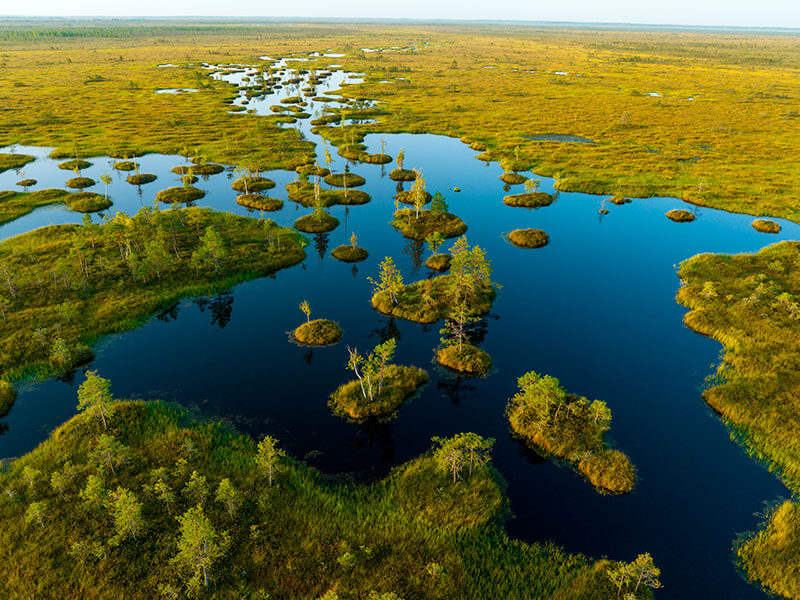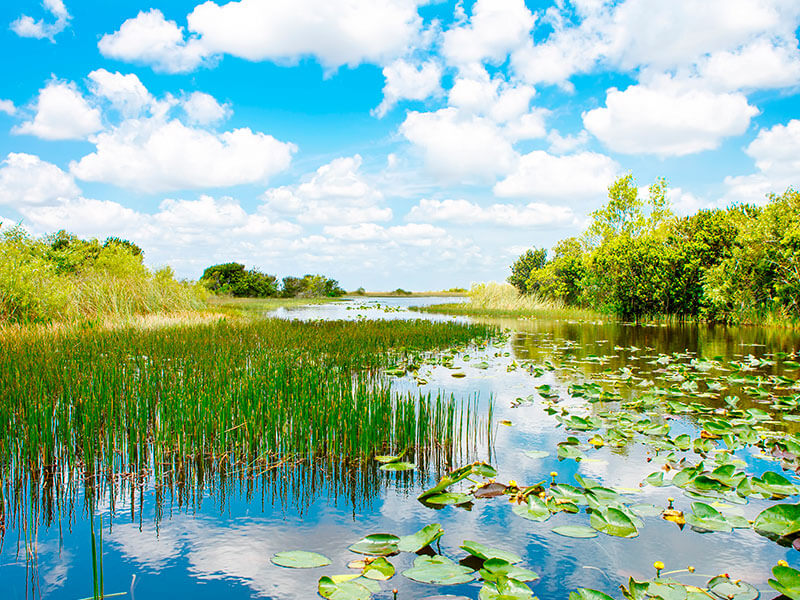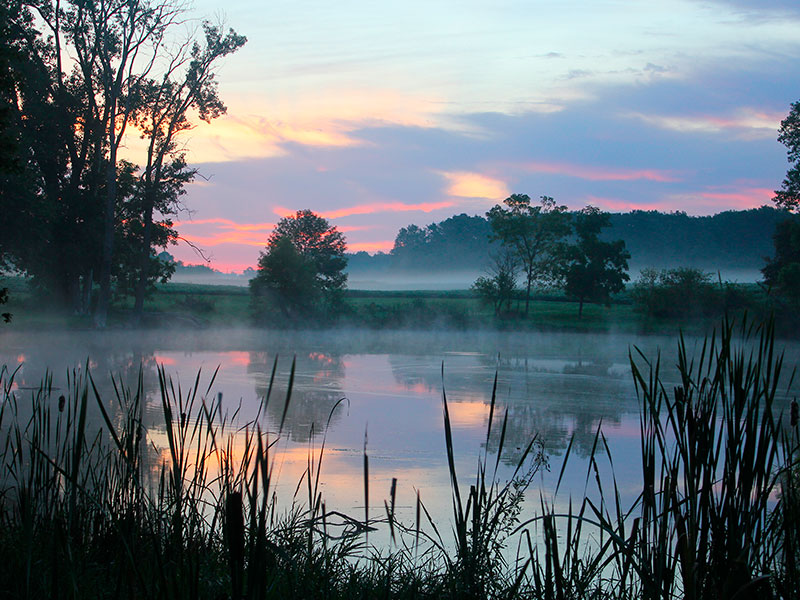Rewet Project
How we recover wetlands
to reduce CO2Freshwater wetlands, floodplains and peatlands have been degraded for several centuries across Europe and continue to be degraded, with the main drivers being large-scale drainage for agriculture, forestry, mining of peat and other materials. Wetlands, in particular peatlands, contain huge amounts of carbon and their disruption results in high GHG emissions being released into the atmosphere.
Moreover, climate warming and changes in rainfall patterns lead to the drainage of wetlands, contributing to GHG emissions and the occurrence of natural disasters. Hence, the conservation, restoration and proper management of these ecosystems will significantly reduce current GHG emissions and has enormous potential for net carbon sequestration. Those practices are essential to meet EU and global targets on climate, nature, and water. For effective climate change mitigation, it is essential that wetlands’ carbon dynamics are better understood, their full sequestration potential mapped, and the most effective management and restoration measures identified and fostered.


Impact of the REWET project
In line with the European Green Deal objectives, the research and innovation activities of the project will provide a thorough understanding of the complexity inherent to the management, conservation, and restoration of wetland ecosystems. REWET will analyse and identify the best restoration strategies to maximise carbon storage capacity and reduce GHG emission of wetlands, considering their climate mitigation service.
REWET targets
The project will provide measurable contributions to achieve the following targets:
- Improve knowledge on the status of EU wetlands: location, condition, type of management and pressures (including climate change) and restoration potential, to understand their capacity as carbon sinks or GHG sources for climate mitigation.
- Improve assessment of the added value of wetland, peatland and floodplain restoration approaches under different scenarios.
- Monitor their benefits and trade-offs in terms of GHG emissions, climate change adaptation and disaster risk reduction.
- Analyse the degree to which these approaches related to wetlands are affected by different scenarios of climate change.
- Contribute to the evidence on ecosystem services provided by restored wetlands and their long-term management as an investment with significant societal benefits.



